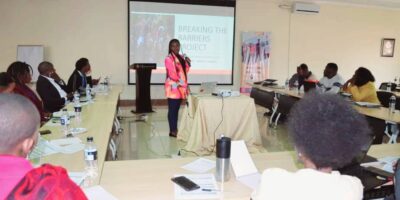Press Statement

A CALL FOR DISTRICT COUNCILS ACROSS THE COUNTRY TO EMBRACE AND FOSTER OPEN CONTRACTING PRINCIPLES AND PRACTICES FOR BETTER PUBLIC PROCUREMENT AND CONTRACT MANAGEMENT OUTCOMES
The Centre for Human Rights and Rehabilitation (CHRR) would like to commend the various District Councils across the country that have performed well through the Minimum Access Conditions (MACs) test during the 2021 Local Authorities Performance Assessment (LAPA) leading up to receipt of the Performance Based Grants (PBGs) during the 2022 financial year. In the same spirit, CHRR commends the Malawi government, particularly, the Ministry of Local Government and Ministry of Finance for implementing such a strategy. The PBGs are a stepping stone towards improving service delivery through promoting effective management, accountability, efficiency and value for money, while pursuing local development plans and outcomes.
However, we also take note of the case examples of Blantyre and Ntcheu that failed the 2021 MACs test, attributed to among other things non-compliance with procurement and contract management requirements i.e., spending on ineligible expenses thereby denying their residents expected development outcomes. We know that a large portion of our national budget (up to between 70-80 percent) goes towards procurement of goods and services for various initiatives and we have seen how such reckless decisions and actions by public officials have costed the public millions of Malawi Kwacha and loss in quality public service delivery and development outcomes. There is no excuse or there should be no excuse for resource misappropriation, mismanagement or misallocation.
According to Nicola Smithers (World Bank) “Performance Based Grants project strengthen accountability relationships between citizens and local government to ensure that increased resources are transformed into quality priority local development projects.” PBGs places citizen engagement and civil society partnerships front and centre to promote trust and accountability.
The fact that Blantyre and Ntcheu will not benefit from the PBGs during the 2022 financial year, is a burden to the districts themselves and their residents in an already financially straining environment and further muffles confidence among residents. Sadly, the individuals responsible for such outcomes are often not held to account for their decisions and/or actions, despite the implications to the districts and its residents.
We at CHRR, believe that adopting open contracting characterized by disclosure of information, accountability, value for money, fair business practices, public participation and oversight throughout the entire procurement processes can be instrumental in empowering district councils to do well in such performance assessments. The need to adopt open contracting is also provided for in our laws including the Malawi Constitution, the Public Procurement and Disposal of Assets (PPDA) Act of 2017, the Access to Information Act of 2017 among others. We, therefore, call all District Councils to embrace and foster open contracting principles and practices for better public procurement and contract management outcomes and service delivery.
In addition, we ask the Ministry of Local Government and Ministry of Finance to consider some administrative consequences for district council officials that fail to meet minimum indicators due to negligence, incompetence or non-compliance in addition to withholding the PBGs as an incentive for improved performance.
Signed today,

Michael Kaiyatsa
Executive Director
Phone: +265 -998-895-699















Comments